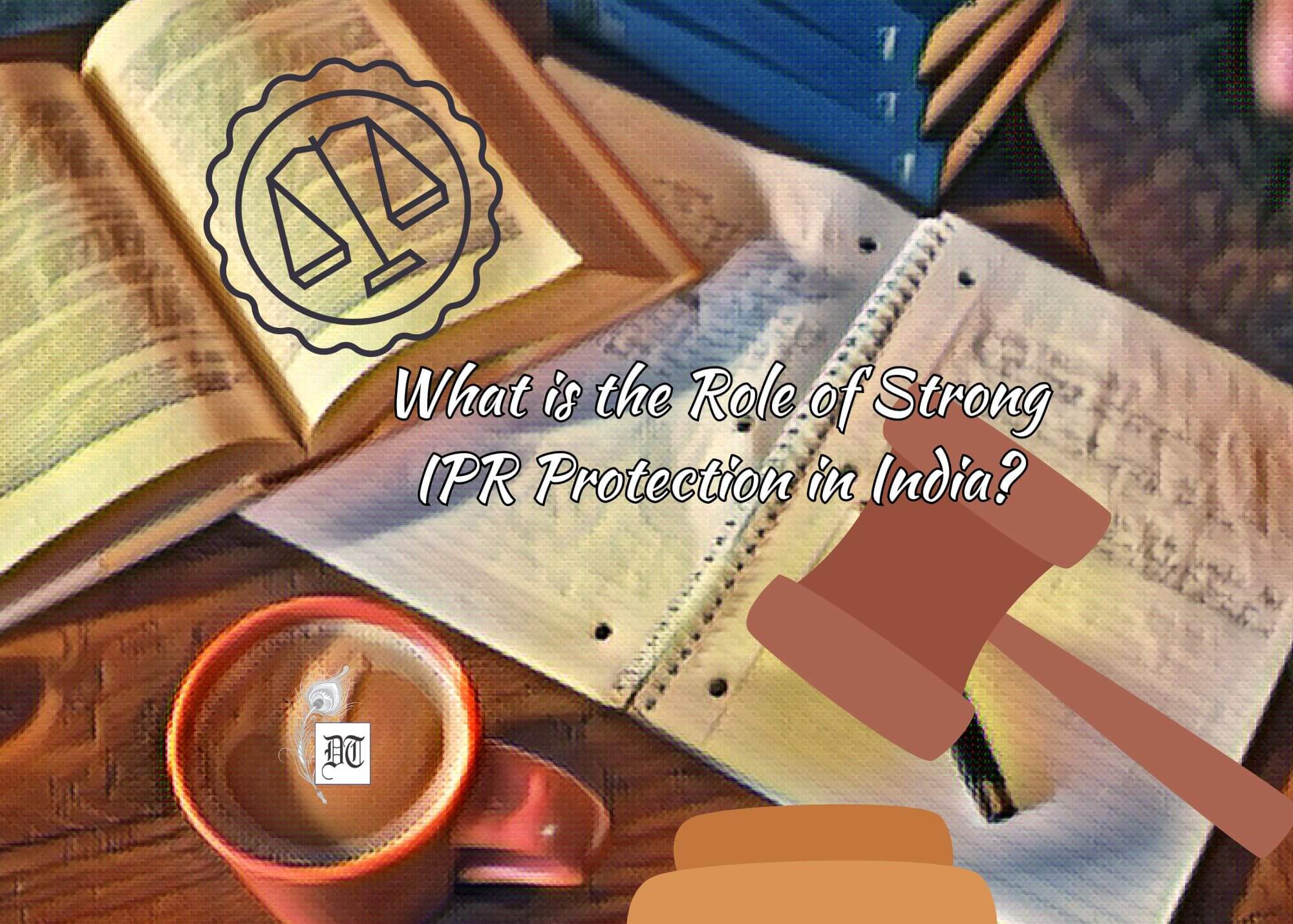Piracy in India negatively impacts the economy, causing job losses and fiscal erosion rues Arindam. Strengthening IPR is crucial he suggests, exclusively for Different Truths.

Piracy, the unauthorised use, or distribution of copyrighted materials, casts a long shadow over India’s economic landscape. Its tentacles reach across diverse sectors, siphoning billions from legitimate businesses and hampering the nation’s potential for growth and innovation. Recognising the gravity of its economic impact underscores the critical need to fortify India’s Intellectual Property Rights (IPR) framework, safeguarding the very foundation of a thriving economy.
Quantifying the Losses:
Piracy has had a staggering impact on the economy. A report by the Federation of Indian Chambers of Commerce and Industry (FICCI) estimates annual losses exceeding billions of dollars, a burden borne by various sectors. The media and entertainment industry stands particularly vulnerable, with the film industry alone haemorrhaging billions of rupees annually (FICCI, 2018). Similarly, the software industry grapples with rampant software piracy, eroding revenue streams, and discouraging investment in innovation.
Beyond the Numbers: Stifling Innovation and Creativity
Piracy’s detrimental effects extend beyond mere financial losses.
Piracy’s detrimental effects extend beyond mere financial losses. It stifles the very engines of progress—innovation and creativity. Inadequate IPR protection disincentivises investment in research and development, hindering technological advancements and India’s ability to compete in the global marketplace. This stifles economic growth and limits the nation’s potential to reach its full economic potential.
A Multifaceted Crisis: Job Losses and Fiscal Erosion
Piracy’s tentacles extend beyond financial losses, impacting the lives of countless individuals. Job losses ripple through industries disproportionately affected, exacerbating unemployment and economic hardship. Moreover, the government loses vital tax revenue as pirated goods evade taxation, further straining public finances and hindering investments in critical sectors.
Empirical Evidence: Case Studies Paint a Grim Picture
Numerous case studies and research projects paint a stark picture of the economic impact of piracy in India. An Ernst & Young (EY) study estimates the media and entertainment industry alone loses billions of dollars annually due to piracy (EY, 2020). Similarly, the Indian Music Industry (IMI) highlights the detrimental effects of music piracy, with estimated losses amounting to billions of rupees (IMI, 2019). These studies serve as stark reminders of the urgency of addressing this issue.
Building a Fortress: The Role of IPR Protection
Safeguarding IPR is the cornerstone of mitigating the economic impact of piracy…
Safeguarding IPR is the cornerstone of mitigating the economic impact of piracy and fostering sustainable economic growth. Robust enforcement of IPR laws, coupled with awareness campaigns and capacity-building initiatives, is essential to deter piracy and promote a culture of respect for intellectual property. International collaborations and partnerships can further strengthen India’s IPR enforcement regime, leveraging best practices and expertise from across the globe.
Protecting the Future, One Copyright at a Time
Piracy poses a significant economic threat to India’s future, but it is not an insurmountable one. By prioritising the protection of IPR, India can build a robust and thriving economy, unleashing the potential of its creators, businesses, and citizens. The time to act is now, for every copyright protected is a step towards a brighter economic future for all of India.
The Role of the Government in Enforcing IPR Effectively
The Indian government plays a crucial role in enforcing IIPR laws effectively to safeguard innovation, creativity, and economic growth. Understanding the government’s role in this domain involves examining its legislative efforts, enforcement mechanisms, international commitments, and initiatives to promote awareness and compliance.
Legislative Framework: The Indian government has enacted several laws to protect intellectual property across various sectors. The key legislation includes the Copyright Act of 1957, the Patents Act of 1970 (amended in 2005), the Trademarks Act of 1999, and the Designs Act of 2000, among others. These laws provide a robust legal framework for the protection and enforcement of intellectual property rights in India.
Enforcement Mechanisms: The government has established specialized agencies and authorities tasked with the enforcement of IPR laws. The Department for Promotion of Industry and Internal Trade (DPIIT) oversees intellectual property-related matters and coordinates enforcement efforts across different sectors. Additionally, agencies such as the Indian Patent Office, Copyright Office, and Trademarks Registry are responsible for granting and enforcing intellectual property rights in their respective domains.
International Commitments: India is a signatory to various international agreements and treaties aimed at harmonising intellectual property standards and promoting global cooperation in enforcement. These include the Agreement on Trade-Related Aspects of Intellectual Property Rights (TRIPS) under the World Trade Organisation (WTO), the Berne Convention for the Protection of Literary and Artistic Works, and the Patent Cooperation Treaty (PCT), among others. Compliance with these international obligations reinforces the government’s commitment to upholding intellectual property rights.
Initiatives for Awareness and Compliance: The Indian government undertakes initiatives to raise awareness about intellectual property rights and promote compliance among stakeholders. These initiatives include educational campaigns, workshops, seminars, and capacity-building programs aimed at sensitizing businesses, creators, and the general public about the importance of respecting intellectual property rights. Additionally, the government collaborates with industry associations, academic institutions, and civil society organisations to disseminate information and best practices related to intellectual property protection.
Strengthening Enforcement: To strengthen enforcement efforts, the government collaborates with law enforcement agencies, the judiciary, and other stakeholders to combat intellectual property infringement effectively. Specialised intellectual property crime units and enforcement wings have been established to investigate and prosecute cases of piracy, counterfeiting, and other forms of intellectual property infringement. Moreover, the government engages in capacity-building initiatives to enhance the skills and capabilities of enforcement officials involved in intellectual property enforcement.
The Indian government periodically reviews and updates intellectual property laws…
Legislative Reforms and Policy Initiatives: The Indian government periodically reviews and updates intellectual property laws to align them with evolving global standards and address emerging challenges. Legislative reforms, policy initiatives, and amendments to existing laws are undertaken to strengthen intellectual property protection, streamline procedures, and enhance enforcement mechanisms. Furthermore, policy frameworks such as the National IPR Policy aim to foster innovation, promote creativity, and facilitate the effective enforcement of intellectual property rights in India.
To conclude, the Indian government plays a pivotal role in enforcing intellectual property rights laws effectively to protect innovation, creativity, and economic growth. Through legislative efforts, enforcement mechanisms, international commitments, and initiatives for awareness and compliance, the government strives to create an enabling environment for the protection and enforcement of intellectual property rights in India. By bolstering enforcement efforts, promoting compliance, and undertaking policy reforms, the government contributes to fostering a culture of innovation and creativity while safeguarding the rights of creators, innovators, and businesses.
References:
1. Federation of Indian Chambers of Commerce and Industry (FICCI). (2018). Report on the Impact of Piracy and Counterfeiting on the Indian Economy.
2. Ernst & Young (EY). (2020). Economic Impact of Piracy in the Indian Media and Entertainment Industry.
3. Indian Music Industry (IMI). (2019). Study on the Economic Impact of Music Piracy in India.
Department for Promotion of Industry and Internal Trade (DPIIT). (n.d.). Government of India.
4. World Trade Organization (WTO). (n.d.). Agreement on Trade-Related Aspects of Intellectual Property Rights (TRIPS).
5. Indian Patent Office. (n.d.). Ministry of Commerce and Industry, Government of India.
6. Copyright Office. (n.d.). Ministry of Commerce and Industry, Government of India.
7. Trademarks Registry. (n.d.). Ministry of Commerce and Industry, Government of India.
8. Government of India. (2016). National Intellectual Property Rights (IPR) Policy.
Picture design by Anumita Roy





 By
By
 By
By
 By
By
 By
By